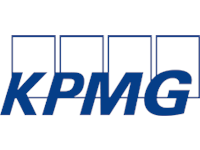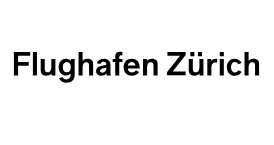We are seeking two highly motivated and curious PhD students to join the Inorganic Environmental Geochemistry group at ETH Zurich and Eawag, the Swiss Federal Institute of Aquatic Science and Technology, an interdisciplinary team of researchers studying biogeochemical cycles of trace elements across different environmental compartments. Our mission is to understand and predict environmental distributions of health-impacting trace elements to prevent health hazards, today and in the future.
Project backgroundWe are looking for two 4-year PhD students to join a new Swiss National Science Foundation (SNSF) funded project. The goal is to improve our understanding of how the essential micronutrient selenium (Se) cycles through the atmosphere, from emissions, chemical transformations and transport to deposition. The project will integrate field sampling, lab analyses, and computational atmospheric modeling to further investigate the role of the atmosphere in the global biogeochemical cycle of Se. As selenium is chemically similar to the major nutrient sulfur (S), the project will also aim at sulfur and compare the environmental pathways of both elements.
The global biogeochemical cycles of trace elements that affect human health are increasingly understood to involve the atmosphere. One key example is selenium, an important antioxidant. Understanding and quantifying the atmospheric transport and chemical form of selenium is vital because it determines its ultimate fate in our surface environments and, most importantly, its impact on human health.
If you are passionate about environmental and atmospheric sciences and want to contribute to our understanding of this critical element, these positions could be a great fit.
Job descriptionThe two projects we offer are closely linked: one project (A) focuses on field sampling and lab analyses, and the other (B) on modeling.
Project A: This project will focus on designing and conducting field sampling campaigns across all seasons in urban, mountainous, and marine environments. Your goal is to collect both wet (rain, hail, snow) and dry (aerosol) deposition samples. Upon collecting the samples, you will perform lab analyses to determine the total elemental composition and elemental speciation of various chemical compounds using ICP-MS based methods, as well as other chemical analyses. A core part of your project will be interpreting the data and developing scientific hypotheses about the atmospheric processes that control the cycling of selenium and other trace elements. You will work in close collaboration with the other PhD student (Project B).
Project B: This project will center on atmospheric modeling of selenium, specifically by extending our global selenium cycling model, which is part of the ICON-ART (ICOsahedral Nonhydrostatic - Aerosols and Reactive Trace gases) modeling system. The goal is to better understand the environmental pathways of selenium - from its emission from marine and terrestrial sources, through its chemical transformation in the atmosphere, and finally to its deposition as wet or aerosol particles. You will also use statistical inference methods for hypothesis testing. By the end of the project, you will create maps of atmospheric Se inputs to the Earth's surface and predict how Se deposition patterns might change under future climate and emission scenarios. A crucial component will be to validate your model results using existing atmospheric measurements and new data gathered within Project A, working in close collaboration with the other PhD student.
Both projects: Within the framework of the project, you will have opportunities to investigate your own creative ideas and to closely collaborate with partners at ETH Zurich and other institutions. A critical part of your work will involve publishing your results in peer-reviewed journals and presenting your findings at international conferences. Additionally, you will be expected to organize regular project meetings and participate in some teaching activities at ETH Zurich.
ProfileProject A: You have a MSc degree in environmental chemistry, geochemistry, environmental sciences or a related field, with a strong interest in chemical analyses. You are passionate about field work and feel comfortable about working outdoors in all seasons and weather conditions during intense sampling campaigns. You bring a high level of appreciation for the accuracy and precision in lab analysis. Ideally you have some experience in working with ICP-MS or other Mass Spectrometry techniques.
Project B: You have a MSc degree in atmospheric or climate sciences, environmental or Earth sciences, physics, computational sciences or a closely related discipline with a strong interest in numerical and quantitative science. You bring strong programming skills with languages like Fortran, C, R or Python. Prior experience in the field of process-based modeling, e.g., climate modeling, is an asset.
For both projects, fluent communication and writing skills in English are mandatory. The ideal candidates are self-driven, think critically and are excited to collaborate within our diverse, interdisciplinary team.
We offer - Training opportunities with leading experts in chemical analytics of trace elements, modeling, biogeochemical cycles, and atmospheric processes.
- Support programmes and networking opportunities such as attending international conferences.
- An interdisciplinary research group combining expertise in biogeochemical analytics as well as statistical and mechanistic modeling.
- A supportive working environment that values the well-being of the whole group.
- Flexible working hours and possibility of working from home, promoting a healthy work-life balance.
- A competitive Ph.D. salary according to the ETH standard . Funding is secured for 4 years.
> Working, teaching and research at ETH Zurich
We value diversity and sustainability In line with our values , ETH Zurich encourages an inclusive culture. We promote equality of opportunity, value diversity and nurture a working and learning environment in which the rights and dignity of all our staff and students are respected. Visit our Equal Opportunities and Diversity website to find out how we ensure a fair and open environment that allows everyone to grow and flourish. Sustainability is a core value for us - we are consistently working towards a climate-neutral future .





